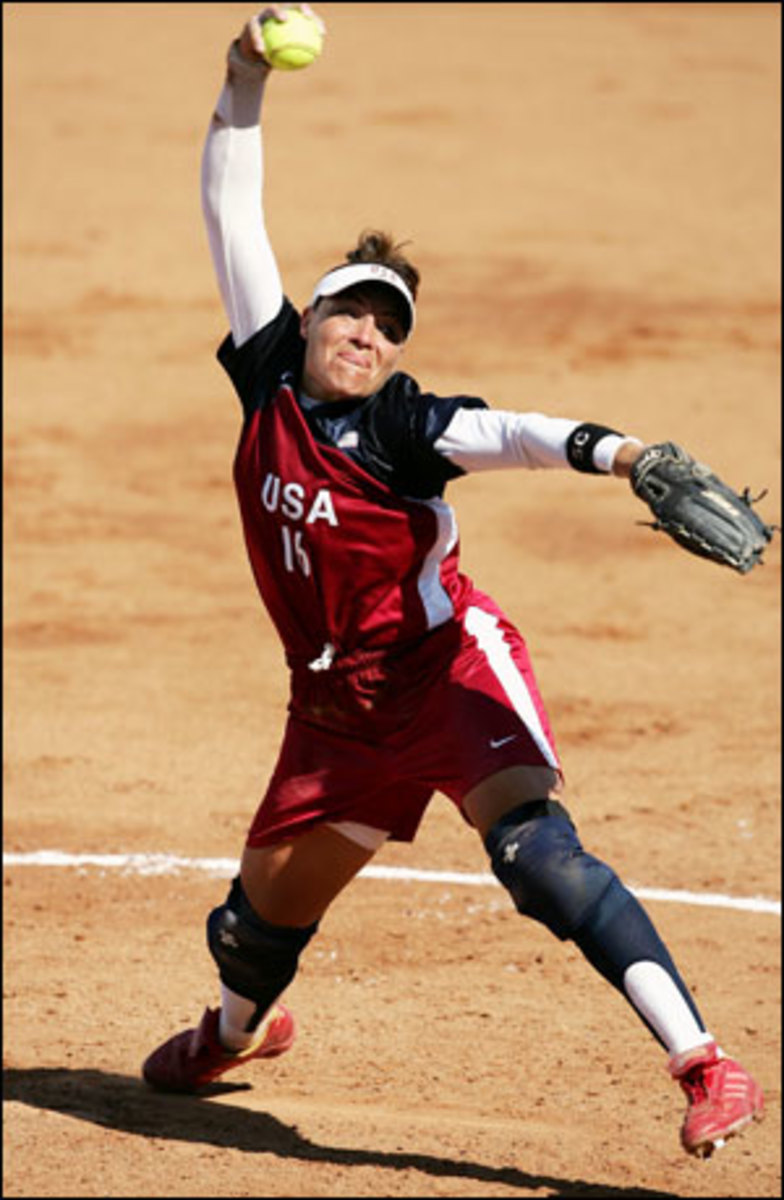Is softball too American?
The pitch for softball's Olympic reinstatement goes something like this: at a time when the IOC is trying to promote women's sports, here is a team event that was voted off the Olympic program three years ago under dubious circumstances, is growing in popularity around the world, would make for good programming on NBC and could share a venue with other sports in order to save money.
If only it were that simple.
It is not entirely softball's fault that it faces an uphill fight to be added back to the program during the next IOC session in Copenhagen in 2009. The IOC, which selects host Olympic cities seven years in advance of the Games, voted in 2005 to drop softball from the program in 2012. The sport will appear this summer in Beijing, where it has a following, but not in 2012 in London, where it does not.
In recent years, IOC President Jacques Rogge has sought to modernize the Olympics, reaching out to sports and events within sports (snowboarding under the skiing umbrella, BMX under the cycling umbrella) that appealed to a younger audience. At the same time, Rogge also wanted his membership to reassess sports such as modern pentathlon that may not have been cost-and-resource effective, because they garnered little international coverage or had a limited global competitive balance. Still other sports may have had issues with drugs or poor participation among its elite athletes.
At the IOC session in Singapore in 2005, the IOC members held special votes, in essence to recertify each of the 28 sports in the summer program to remain in the Games. Sports needed a majority to survive, and one by one, they did. Only baseball and softball missed the cut, though the vote for softball was 52-52. As Rogge announced softball's fate, Anita DeFrantz, a U.S. member of the IOC, looked as though she'd been whacked with a fastball from Lisa Fernandez. "I cannot understand how, at a time when the IOC is claiming to advance the cause of women athletes," DeFrantz said at the time, "that it would take away a women's sport from the Olympics."
The reasons, discussed and otherwise, were varied. Baseball and softball were seen by many as an American package. Major League Baseball refused to halt its season in order to allow the world's best players to participate, as hockey has done to accommodate the winter schedule. MLB had, and still has, what is perceived, in the international sports world, as a drug-testing program that is merely for show. The U.S. Olympic movement as a whole was still suffering from poor perception abroad. Add all of these factors together and softball was already trying to survive, while playing with two strikes.
"A lot of IOC members looked at us as women's baseball," International Softball Federation President Don Porter said on Wednesday during his visit to SI's offices. "Some national federations combine softball with baseball, and we were lumped in with them. Prior to the vote in Singapore, the IOC released a sports evaluation report looking at how each sport fit the criteria for inclusion and softball was right in the middle. I think a lot of IOC members never read the report."
Privately, even IOC members who were no fans of Uncle Sam were surprised at the result. On merit, softball has one significant shortcoming: poor competitive balance at the elite level. In the three Olympics since softball joined the Olympic program in 1996, the United States has won every gold medal, while China, Japan and Australia have been the other teams in the semi-finals each time.
That is changing, but slowly. The Dutch national team is training in the U.S. Many of the players from Venezuela, which recently qualified for the Beijing Games, have played for U.S. universities. The ISF may soon launch a web-based softball channel, so fans can follow domestic and international tournaments from their computers. Moreover, the number of national softball federations around the world has increased to 130.
Many influential members of the Olympic movement, including former IOC President Juan Antonio Samaranch, have come to softball's aid. Donna de Varona, a longtime advocate for women's sports, is another member of the ISF's Back Softball campaign. "To take this sport, when it's just taking root, and take away its Super Bowl is a death blow," de Varona says. "If the IOC is trying to make women's sports grow, the timing just doesn't make sense."
Still, as popular as softball may be in U.S., with participation numbers growing at high school and collegiate levels, the reinstatement campaign must impress the often fickle Euro-centric IOC membership, which sometimes has a short attention span for unfamiliar sports. Last week the ISF opened a regional training center in Moscow, which is reconstituting itself as an Olympic power base since the breakup of the Soviet Union. During a recent trip to the IOC headquarters in Lausanne, Porter said he received nearly unanimous support from the 27 IOC members he spoke to. "Sometimes, it's a matter of taking a lot of elevator rides and shaking the right hands," he says, knowing that softball is swinging for its Olympic life.






